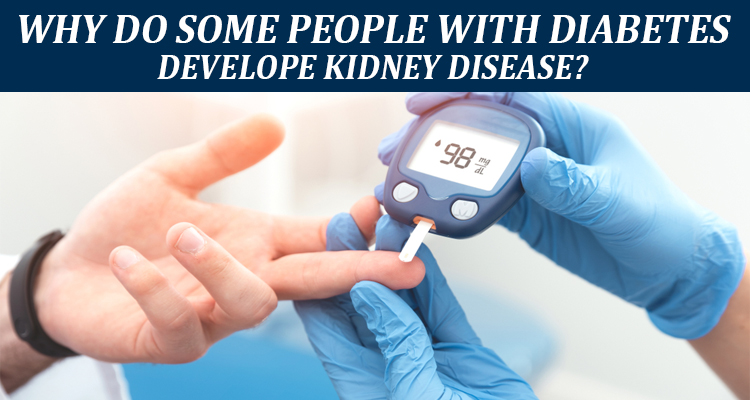What is diabetes?
Diabetes is a health
condition that occurs when the blood glucose level in the body is too
high. Blood glucose is the source of energy that comes from the food you
eat. Insulin is a type of hormone made by the pancreas to allow glucose
to reach cells inside but in the absence of insulin, glucose cannot
reach the cells and stay inside the blood only. Having too much sugar in
your blood can damage the blood vessels of the heart, kidneys, and of
lungs.
What is chronic kidney disease?
Chronic
kidney disease is the gradual loss of kidney function because of
certain health conditions in the body. Over time, such health conditions
harm the kidneys, making them unfit to perform their functions.
Diabetes
is one of the leading causes of kidney damage among individuals. Almost
1 in 4 of the individuals suffer from some sort of kidney disease.
How are diabetes and chronic kidney disease interrelated?
High
blood sugar levels can damage the bloodstream or the blood vessels of
the kidney. This reduces the efficiency of the vessels to work with
their full efficiency. Ultimately, the body will retain more water and
salt than it is supposed to, resulting in weight gain and ankle
swelling.
Minerals and other nutrients may start building up in the blood with diabetic nephropathy.
Besides,
high blood sugar may harm the nerves in the body causing a problem in
emptying the bladder. The resultant, bladder may back up and destroy the
kidneys. If urine stays for more than the required amount of time in
the bladder, you can develop UTI from the bacteria that lodges in.
What are the other risk factors associated with diabetic nephropathy?
You are more likely to have diabetic nephropathy if you:
• Smoke
• Don’t achieve your blood sugar goals
• Have a high blood pressure level
• Consume sodium-rich food
• Are not physically active
• Have the risk of cardiovascular diseases
• A family history of kidney disease
• Are being overweight
• Age over 60 or older
What are the early signs of diabetic nephropathy?
The
early sign of diabetic kidney disease is an extreme excretion of a
protein called albumin through the urine. With albumin excretion, you
may notice weakness, fatigued body, dizziness, swelling in your body,
and weight gain-related symptoms. You will also feel the need to urinate
more at night than in the daytime.
It is important to get your
urine, blood, and blood pressure checked regularly if you have diabetes
already as you are more susceptible to getting CKD.
How can you keep your kidneys healthy even with diabetes?
The best way is ayurvedic kidney disease treatment to cure your blood pressure and blood sugar goals. Ask your physician about the level of diabetes and BP you should maintain according to your condition.
Apart from achieving these goals, what else you can do is develop healthy lifestyle habits, such as:
• Stop smoking
• Get enough sleep for almost 7 to 8 hours daily
• Do more physical activity
• Prepare your diabetes meal plan after consultation with your doctor
• Restrict having alcohol
• Control your blood pressure
• Manage cholesterol level
• Timely take ayurvedic medications
If you want to know more about kidney problems and their causes in detail, connect with Karma Ayurveda Hospital. We are a team of doctors, headed by Doctor Puneet Kidney Specialist, an ayurvedic kidney care specialist in Delhi.
Home Ayurvedic treatment of kidney diseases Why do some people with diabetes develop kidney disease?
Why do some people with diabetes develop kidney disease?
By Karma Ayurveda Hospital At April 22, 2021 0
Subscribe to:
Post Comments
(
Atom
)








Post a Comment